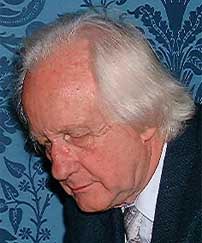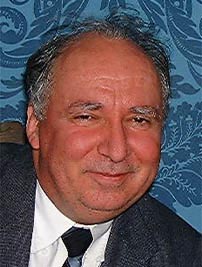The
Iraq Conflict 2002:
A TRANSCEND Perspective


By
Johan
Galtung and
Dietrich
Fischer
co-directors of TRANSCEND,
a peace and development network
TFF
associates
The USA has argued that a military attack on Iraq is
justified because the Saddam Hussein regime has assisted,
even hosted, Al Qaeda and that there is a clear and
present danger of Iraq attacking Israel or others with
weapons of mass destruction. But it has not been able to
convince either world public opinion nor the UN and the
Security Council (except for the UK). This raises the
question whether the US military build-up around Iraq and
the plans for a regime change under US military
occupation (as in Japan) has other motives:
Saudi Arabia, up to now one of the United States' key
allies in the Gulf region, looks increasingly unreliable,
given that 15 of the 19 suspected hijackers on 9/11 were
Saudi nationals, and Saudi money is believed to be a
major source of financing for Al Qaeda, with which it
shares a common ideology, Wahhabism. So Iraq could become
a political and military substitute in the region. This
would also give the US access to Iraqi oil instead of (or
in addition to) Saudi oil; it would liberate Israel from
the perceived Iraqi threat; and a war with Iraq might
serve as a cover for Israel to transfer Palestinians from
Palestine into Jordan, with a regime change.
To gain support for a military attack the USA promises
veto powers in the UN Security Council (France, Russia,
China) access to Iraqi oil.
But a war with Iraq could have disastrous consequences
for the region. The 1991 Gulf war caused about 300,000
Iraqi casualties, and bringing the war to Baghdad would
hardly produce less suffering to a people that has
already suffered enormously from inner and outer foes. It
could unleash a civil war along many fault-lines (for and
against the Hussein Baath-Tikrit regime; Sunni-Shia;
Iraqis-Kurds; Kurds-Turks). Other armies in the Middle
East could be drawn in. The hatred of US/UK foreign
policy in Arab countries and among the world's Muslims in
general would reach new levels, at best only leading to a
long economic boycott of US/UK goods and services, at
worst to massive violence. The fragile tissue of world
order would suffer enormous rifts.
There are alternatives to war! The UN inspection team
led by Hans Blix can be enlarged to find and destroy any
Iraqi weapons of mass destruction, to control potential
production and storage facilities, and to prevent their
future acquisition. Of course, this raises the question
why similar inspections should not also be conducted in
other countries in the region.
From 1994 to 2001, 54 nations negotiated a treaty to
verify the 1972 biological weapons ban and reached
unanimous agreement, with the sole exception of the Bush
administration, which wrecked the treaty. The US would be
in a much stronger position to demand inspections in
another country if it signed that treaty.
The UN has successfully ended wars in Cambodia,
Namibia, East Timor and elsewhere by facilitating and
supervising free and fair elections by secret ballot.
Only the Iraqi people--no outside powers--have the right
to change their regime, and they should be given the
right to do so if they wish. But it is awkward for the US
to demand supervised elections, given that the US Supreme
Court stopped a recount of the questionable ballot in
Florida in the 2000 Presidential elections.
Equality before the law is a basis for world order,
not as a utopian principle but as an order that derives
legitimacy, and hence compliance, from treating equal
cases equally.
For conflict resolution, the UN Security Council
should appoint a Wise People Commission, e.g. with Nobel
Prize winners Carter-Gorbachev-Mandela, to assess the
goals of the parties, trying to bridge legitimate goals
of all.
A significant step towards the end of the Cold War was
the 1973-75 Helsinki Conference, which gave rise to the
Organization for Security and Cooperation in Europe.
Similarly, the UN Security Council (four Christian and
one Confucian country in the permanent nucleus) could
cooperate with the Organization of the Islamic Conference
(OIC) representing 56 Islamic countries to sponsor an
open-ended Conference on Security and Cooperation in the
Middle East (CSCME), to consider:
- A joint UNSC/OIC inspection regime for weapons of
mass destruction in the region, opening Iraq for
inspection and UN supervised elections;
- A joint UN/OIC democracy/human rights campaign in
the region;
- Outstanding issues from the Iraq/Iran and
Iraq/Kuwait wars;
- Moving forward on the Kurdish four-countries
issue;
- The European Community as a possible model for a
Middle East Community of
Israel-Syria-Lebanon-Palestine-Jordan-Egypt.
The more parties are involved in negotiations and the
more issues are on the table, the more likely is it that
mutually satisfactory solutions to conflicts can be
found, because each party can gain something dear to it
in return for concessions on something it considers less
important.
©
TFF & the author 2002

Tell a friend about this article
Send to:
From:
Message and your name
|